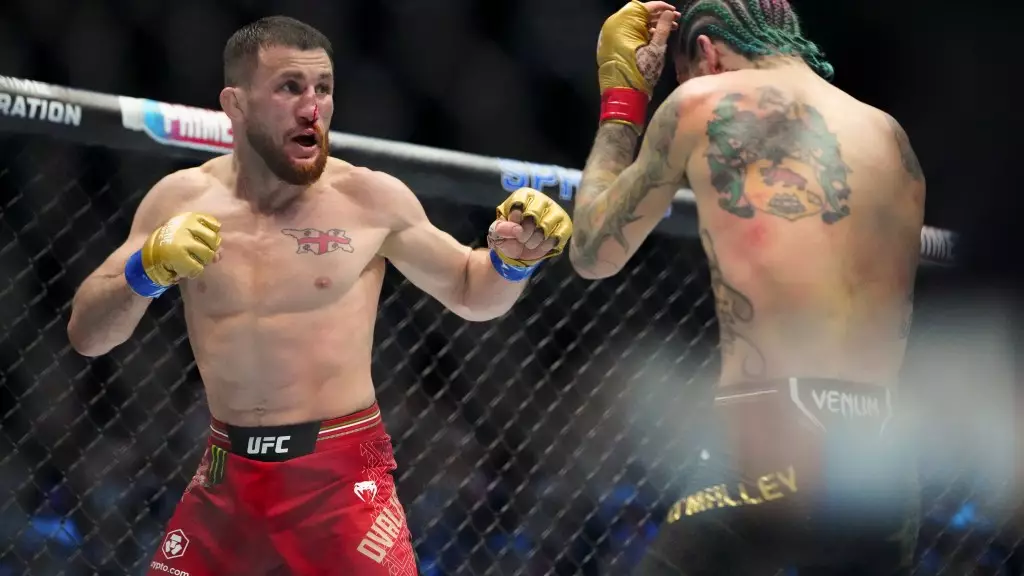In the competitive world of mixed martial arts, fighters put blood, sweat, and tears into their craft to reach the pinnacle of their sport. Merab Dvalishvili, a seasoned contender in the UFC bantamweight division with an impressive 10-fight winning streak, embodies this relentless spirit. However, as he prepares for his co-main event at UFC 311, frustration simmers within him regarding his upcoming opponent, Umar Nurmagomedov, who he feels has not sufficiently earned his title challenge.
Dvalishvili’s discontent stems from the belief that Nurmagomedov, who boasts a perfect record yet has only recently entered the spotlight, has not fought his way through the same rigorous path that he and other top contenders have navigated. In a sport where every match can dramatically alter a fighter’s standing, Dvalishvili’s sentiment resonates with many athletes who labor tirelessly to secure prestigious roles—only to see someone who lacks the same number of marquee wins get a shot at the title.
This sentiment is particularly acute in a division brimming with talent. Dvalishvili specifically mentions other formidable fighters, such as Mario Bautista, who have equally impressive records and deserve recognition. His frustrations highlight a broader issue within the UFC and mixed martial arts as a whole: the difficult balance between marketability and genuine merit.
Despite his dissatisfaction with the circumstances surrounding his title defense, Dvalishvili remains aware of Nurmagomedov’s capabilities in the cage. This duality—recognizing a competitor’s skills while decrying their path to prominence—illustrates the complex psychology of a fighter. Dvalishvili respects Nurmagomedov as a talented adversary, acknowledging that any bout against an undefeated athlete will inevitably be challenging.
The mental preparation for this fight will be crucial. Dvalishvili is not only preparing physically but also gearing up mentally to face the pressure that comes with defending his title against a younger, ambitious fighter who carries the high stakes of an undefeated record. This juxtaposition of respect and resentment is common in sport, where rivalries often fuel the fire of competition and can enhance the drama of the bout.
The Call for Humility in Champions
One of Dvalishvili’s most pointed critiques of Nurmagomedov’s approach is the perceived arrogance he exhibits. He expresses the need for sportsmanship and humility, qualities he believes are essential in maintaining respect within the sport. This expectation speaks to a larger theme within combat sports: that respect among fighters often translates into a healthy competitive ecosystem. For Dvalishvili, the ideal champion embodies not only skill but also character, making the sport more honorable and respected.
As the fight date approaches, the narrative grows. Dvalishvili’s journey is one of resilience and hard work, and his opposition is a reflection of a broader conversation about fairness in title shots. This match will undeniably test both fighters, but it will also serve as a platform for discussion around how opportunities arise in the world of mixed martial arts. Ultimately, Dvalishvili’s insights challenge us to reconsider what it means to be deserving in a sport defined by fierce competition.

